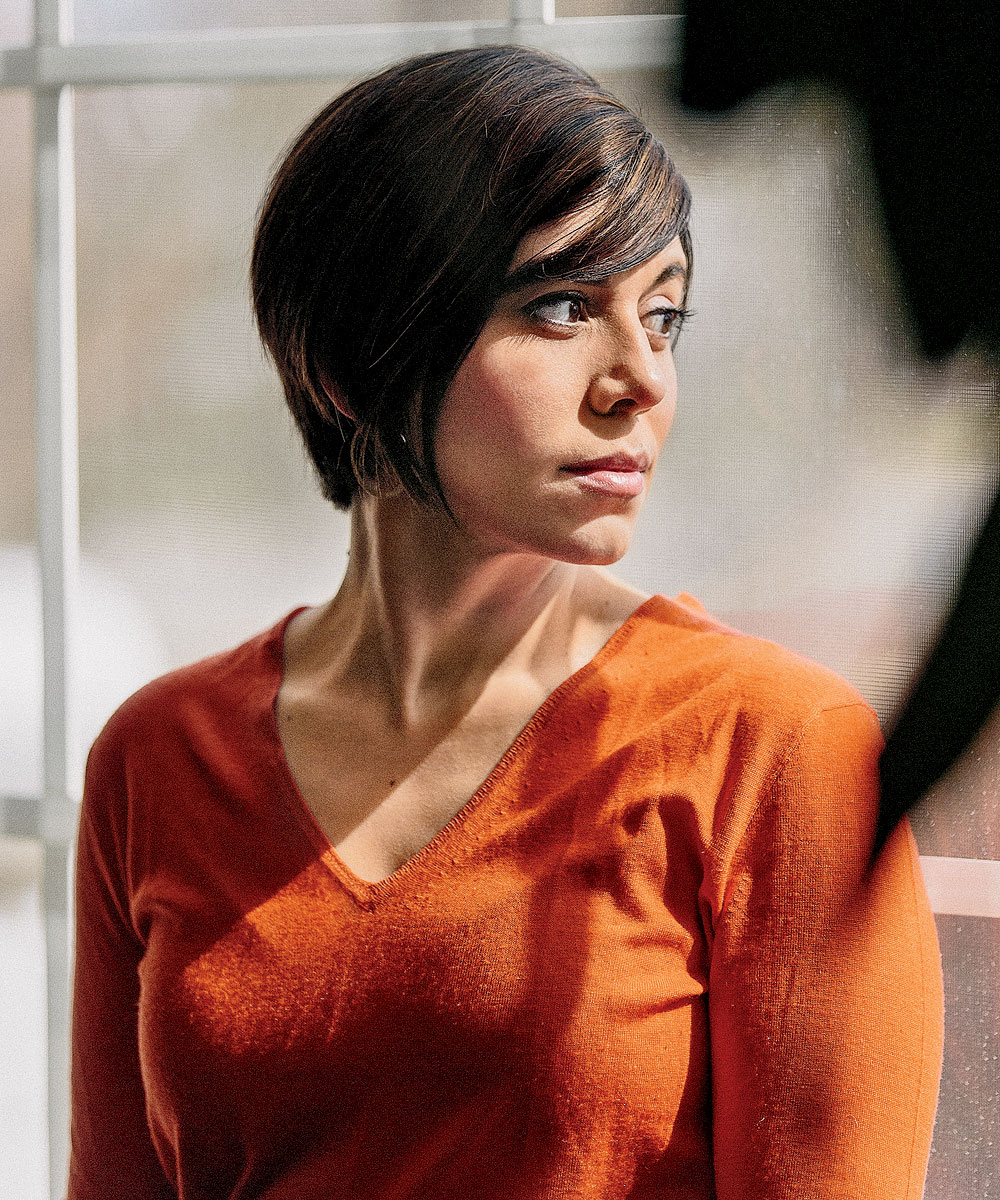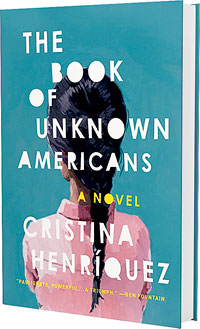When I meet Cristina Henríquez at the Hinsdale Public Library on a chilly April morning, one of the first things she tells me is that she’s a homebody. “Talking to the librarian, or waving to the crossing guard at my daughter’s school, is often the extent of my social interaction in a day,” laughs the 36-year-old author. The library, though, has become a second home for the Hinsdale resident, who spent much of the past five years here writing her gut-wrenching new novel, The Book of Unknown Americans (Knopf, $25), out June 3.
The notion of home—where we make it, how we define it, and why we leave it—lies at the heart of Unknown Americans. The tale of two families, one Panamanian and the other Mexican, who live in an apartment complex in Newark, Delaware (where Henríquez grew up), follows the love story of Mayor, the youngest son of the Panamanian family, and Maribel, a 15-year-old who has just moved to the United States from Mexico with her family. Stories of other immigrants (a Puerto Rican would-be actress and a reformed drug dealer from Nicaragua, for example) are interspersed throughout.
The mother of two young children, Henríquez looks perfectly pulled together when we meet. Her blown-out hair and belted blue coat give no hint of the chaotic image she paints of her typical day. “Get up, get the kids dressed and diapers changed, drop off at school, errands with the baby,” she says. “I scurry around trying to do a million things, then collapse on the couch and watch anything on Bravo.”
That leaves a precious eight hours a week of writing time, which might explain why Unknown Americans took the Northwestern University and Iowa Writers’ Workshop grad so long to finish.
But based on early buzz, it was time well spent. Though Unknown Americans is Henríquez’s third book, Knopf is betting it will be her breakout. (Other houses thought so, too; the novel ended up with Knopf after a bidding war.) “This book is a much larger scope than anything Cristina has done,” says her editor Robin Desser, vice president and editorial director at Knopf. “People think they know about these ‘unknown Americans,’ but Cristina is opening a window in a way that hasn’t been done. She’s documenting it from the point of view of the human heart.”
“I’ve never before tried to tackle anything remotely political,” says Henríquez. “But I didn’t want to do it in a way that was didactic or heavy-handed. I focused on the human stories.”
Unknown Americans was inspired by her father, who left Panama in 1971 to study chemical engineering at the University of Delaware. “He had planned to go back after school, but he met my mom and ended up staying, and now he’s been here for 43 years,” Henríquez says. “It’s a very normal, basic story. There’s nothing spectacular about it—but to me, that’s why it’s important. We should be telling more of these ordinary stories. Somewhere in the accumulation of those is something extraordinary.”




